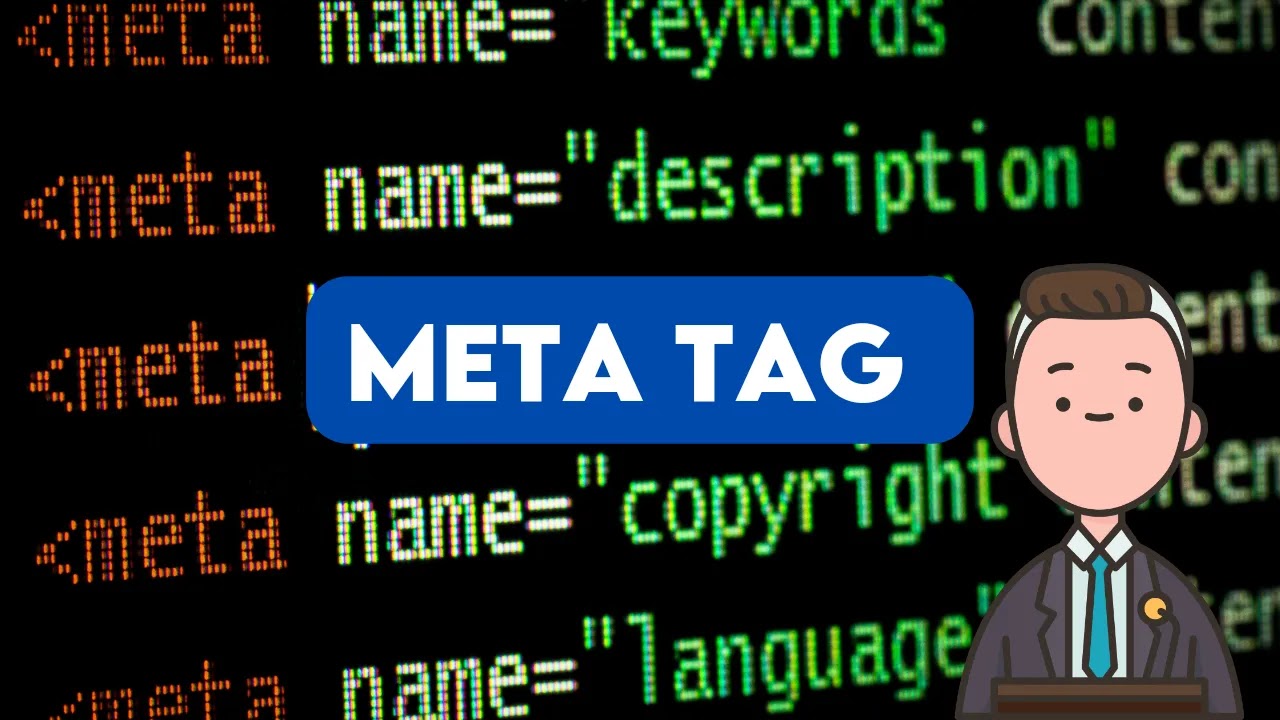Discover the Impact of Meta Tags on Your Blogger SEO
Meta Tag Impact in Blogger SEO
As a blogger, you might have come across the term meta tags. Meta tags are pieces of information about a web page that appear in the HTML code of that page. These tags provide information about the page content to search engines and help them understand what the page is all about. In this article, we will discuss the impact of meta tags on Blogger SEO.
1. Introduction
Search Engine Optimization (SEO) is critical for the success of any blog. Meta tags are an essential part of SEO, and they play a crucial role in improving your blog's visibility in search engines. In this article, we will explore the impact of meta tags on Blogger SEO.
2. What are Meta Tags?
Meta tags are pieces of information about a web page that appear in the HTML code of that page. These tags provide information about the page content to search engines and help them understand what the page is all about. Meta tags are invisible to users but are essential for search engines to understand the content of a page.
3. Types of Meta Tags
There are several types of meta tags that you can use on your blog. The most common ones are:
- - Title tag
- - Description tag
- - Keywords tag
- - Robots tag
- - Author tag
- - Canonical tag
Each of these tags serves a specific purpose in SEO and can help improve your blog's visibility in search engines.
4. Importance of Meta Tags in Blogger SEO
Meta tags are critical for Blogger SEO. They help search engines understand the content of your blog, which can improve your blog's visibility in search engine results pages (SERPs). Using relevant and descriptive meta tags can help you attract more visitors to your blog.
5. Best Practices for Using Meta Tags in Blogger SEO
Here are some best practices for using meta tags in Blogger SEO:
- - Use descriptive and relevant meta tags that accurately describe the content of your blog post.
- - Limit your title tag to 60 characters and your description tag to 160 characters.
- - Use unique meta tags for each page on your blog.
- - Use your primary keywords in your meta tags, but don't overuse them.
- - Use the canonical tag to avoid duplicate content issues.
6. Examples of Meta Tags
Here are some examples of meta tags:
- - Title tag: "Meta Tag Impact in Blogger SEO - A Complete Guide"
- - Description tag: "Learn how to use meta tags to improve your Blogger SEO and attract more visitors to your blog."
- - Keywords tag: "Meta tags, Blogger SEO, search engine optimization"
- - Robots tag: "index, follow"
- - Author tag: "Dhanjeerider"
- - Canonical tag: "https://www.dktrchnozone.in/meta-tag-impact-in-blogger-seo"
7. Tools for Generating Meta Tags
There are several tools available that can help you generate meta tags for your blog. Some of the popular ones are:
- - Yoast SEO plugin
- - All in One SEO Pack
- - SEOPress
These tools can help you generate meta tags and optimize your blog for search engines.
8. Common Mistakes to Avoid When Using Meta Tags
Here are some common mistakes to avoid when using meta tags:
- - Using duplicate meta tags on different pages of your blog.
- - Overusing keywords in your meta tags.
- - Not using a descriptive title tag
9. Conclusion
In conclusion, meta tags play a crucial role in Blogger SEO. They provide information about your blog's content to search engines, which can help improve your blog's visibility in search engine results pages. By using relevant and descriptive meta tags, you can attract more visitors to your blog and improve your blog's search engine rankings. Remember to follow best practices and avoid common mistakes when using meta tags on your blog.
10. FAQs
1. What are meta tags, and why are they important for Blogger SEO?
Meta tags are pieces of information about a web page that appear in the HTML code of that page. They provide information about the page content to search engines, which can help improve your blog's visibility in search engine results pages.
2. How many meta tags should I use on my blog?
There is no set number of meta tags you should use on your blog. However, it is recommended to use relevant and descriptive meta tags for each page on your blog.
3. Can I use the same meta tags on multiple pages of my blog?
No, it is not recommended to use the same meta tags on multiple pages of your blog. Each page on your blog should have unique meta tags that accurately describe the content of that page.
4. What is the optimal length for a title tag and a description tag?
The optimal length for a title tag is around 60 characters, and the optimal length for a description tag is around 160 characters.
5. What are some common mistakes to avoid when using meta tags on my blog?
Some common mistakes to avoid when using meta tags on your blog include using duplicate meta tags on different pages of your blog, overusing keywords in your meta tags, and not using a descriptive title tag.

